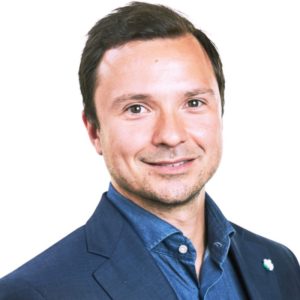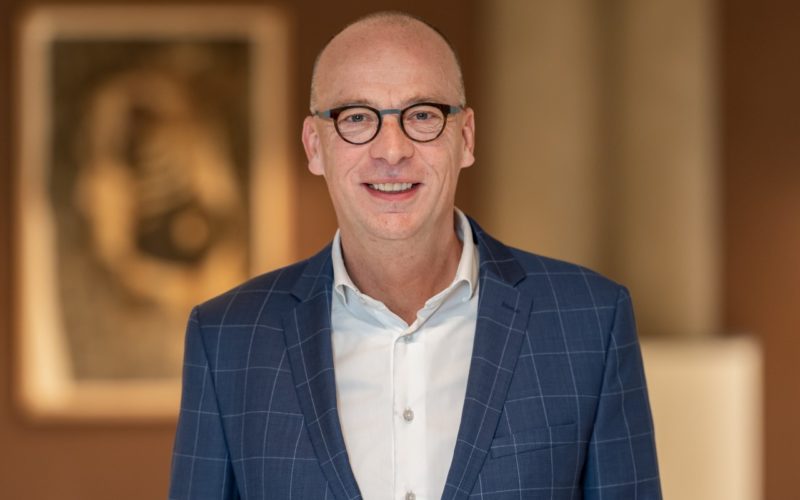Was it difficult for you to adapt to this kind of management?
This is for sure an ongoing learning process. Things change all the time. At the moment, as employees and teams get younger, people expect different things. Adapting is not so difficult, but actually seeing what people need is always a challenge. More recently, I have been asking more concrete questions instead of guessing what people need. It doesn’t come naturally to me. I really need to be aware and need to check in with people to see what they need.
What is the inspiration for your management style?
In the past I learned more from my own team than from my managers in terms of how to be a good manager because you can only be successful if you understand the needs of your team and talk to them about it.
Moreover, I can recommend some books and podcasts that I find inspiring.
- The book Radical Candor by Kim Scott is really good, especially when it comes to establishing open and transparent communication and giving and receiving feedback.
- In the past I have had colleagues who felt very stressed and busy and the book Busy by Tony Crabbe really helps people see their work in perspective and of course prioritize!
- Another good book is Getting things done. It’s about structure and how to manage your time, tasks, and attention.
- The Supermanagers podcast is really insightful, because they talk to different managers every week and they really walk you through concrete challenges from their careers.
Which challenges are you currently facing at Naïf?
Our goal is to become the number one baby care brand. At the same time we offer a premium proposition in times of high uncertainty and high inflation. That’s a tough nut to crack.
We want to reach all parents and help them take good care of their kids, which means constantly finding the right balance in the marketing mix and in the way we approach our consumers with valuable content (also to justify the premium).
Overall, we have a lot more opportunities than challenges. We are still adding new customers, opening up new geographies, and innovating on all aspects of the business. For example, we are building a more professional forecasting system. It’s all about improving, getting better and growing.
Is it difficult for you to find a balance between your work and personal life?
I’m quite pragmatic, and I do not need a very strict separation between my work and personal life. I try to strive for a good integration of my work and private life but with a lot of flexibility. If I wake up super early on holiday and check my email, I don’t feel like my whole vacation is wasted. Especially with kids, it’s not always going super smoothly and you need to monitor the way you manage this closely and communicate well!
Do you have some advice about how you struggled in the past and now know how to handle it?
Manage expectations both at home and at work. I have tendency to be a bit too positive, especially at home, so when you manage expectations of others, always assume the worst impact or timing. For me it’s important to remember this, I still forget sometimes.
Which are key sales and marketing competences that you look for when you hire people?
When hiring people for me by far the most important competence is willingness and ability to learn and grow. You have to focus on the transferrable skills and they are driven by willingness to learn, to dive into a new role and to react well to feedback.
Secondly, I try to hire for resilience. If something goes wrong or you make a mistake, you have to be able to smile and move forward. At Naïf, we always try to remember we’re just selling shampoo. It’s not the end of the world if something goes wrong. Get back up and keep trying!
What is your general piece of advice for young professionals?
Take the big chances and risks early in your career because later it becomes much more complicated. For example, start your own company or explore different industries early. On top, choose jobs where you’re going to grow the most. If you feel like you’re not growing in a role, you need to leave, or get a hobby ;).
Honesty (and transparency) is always the best policy. Especially the younger generation of employees demands it. Unclarity, bad communication and not being transparent (and not just saying that you are) are critical for success. It might take some practice, because it can be scary, so start when you’re young.
What makes Naïf attractive as an employer?
First of all, the team and working atmosphere at Naïf are very pleasant. Everybody is super nice and kind. All the people that have joined Naïf in the past year, mentioned that they felt so incredibly welcome!
Secondly, the entrepreneurial environment is amazing to work in. Jochem and Sjoerd, the founders of Naïf, are entrepreneurs to the core. I don’t think a week goes by when there is not someone stopping by to discuss potential collaborations, a new business deal, etc. That fits me really well and gives me a lot of energy.
Finally, purpose driven companies like Naïf are the future. The challenge is to find a balance between the purpose and the business, but Naïf is doing that quite well. Our ambition is to change the world of personal care and in our category we see that we are pushing other brands forward. It gives more satisfaction than just sales result or a cool marketing campaign.





